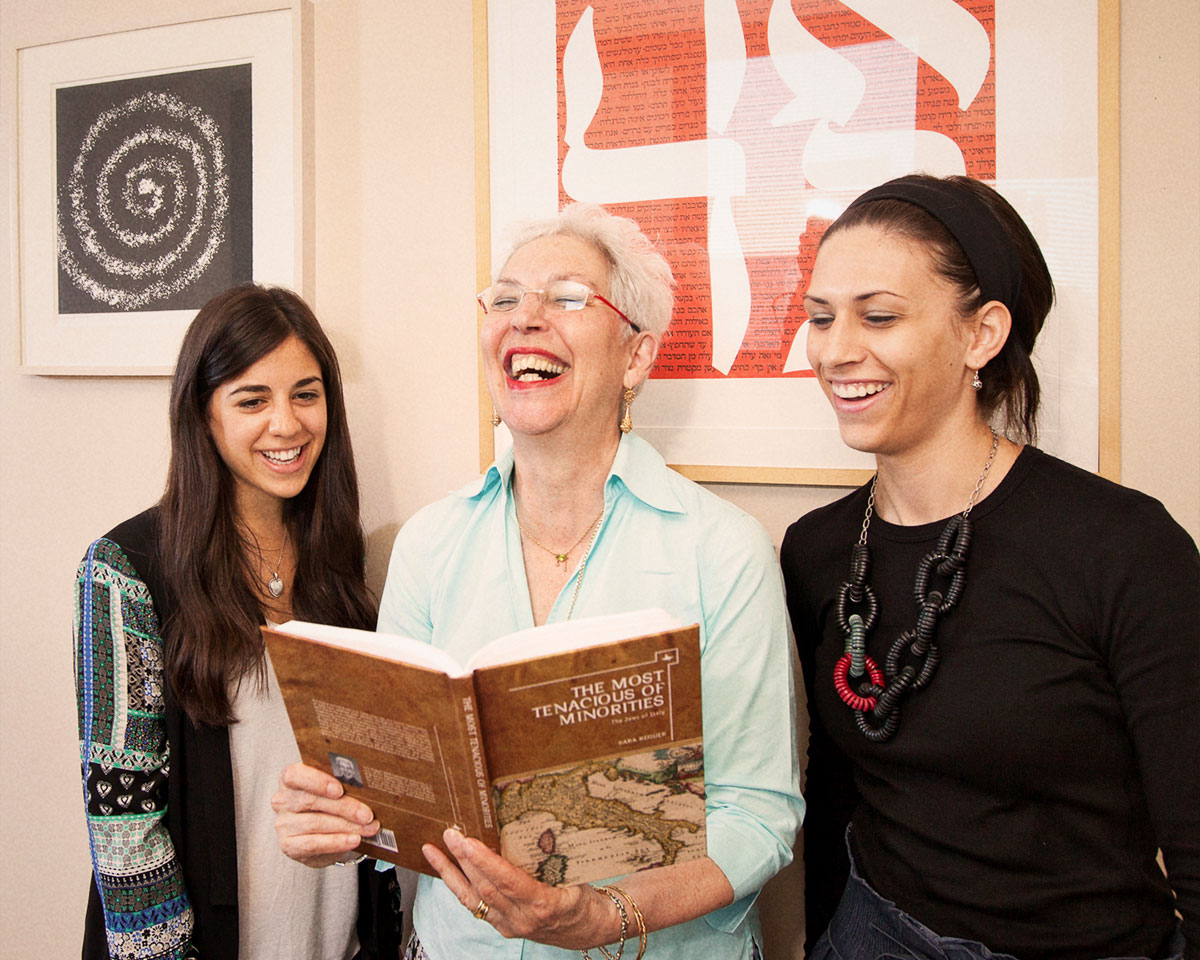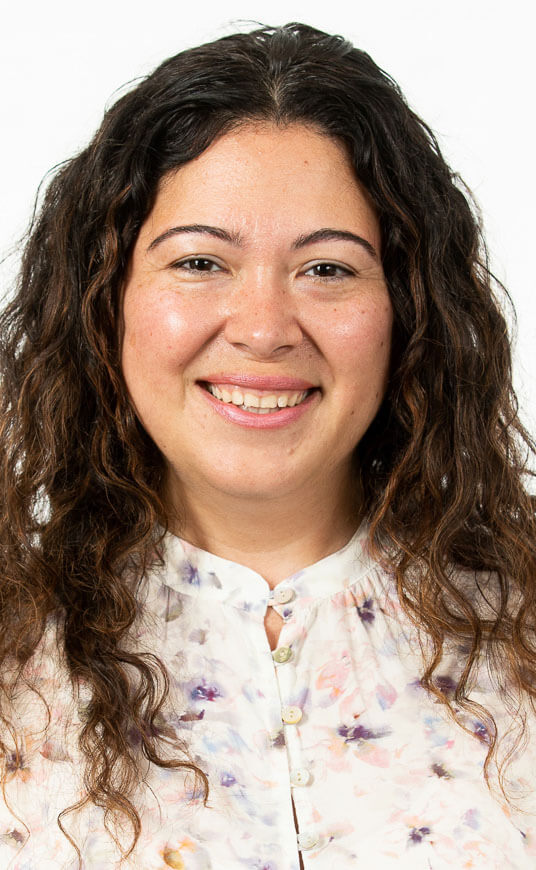Judaic Studies, B.A.
School of Humanities and Social Sciences
Program Overview
As a Judaic studies student, you’ll get to explore the tremendous scope and diversity of the Jewish experience. You’ll study Jewish civilization from its ancient Middle East roots to the many places in which it flourishes today. As the only Judaic studies department within the CUNY system, we offer a unique opportunity for students of all religious backgrounds to explore Jewish heritage in a historical light. Courses in Hebrew and Yiddish, as well as in translation, promote access to a wide spectrum of Jewish literature. We also offer courses that will advance your understanding of the vast and complex Jewish communities and diasporas residing in Brooklyn.

Major Details
The program information listed here reflects the approved curriculum for the 2024–25 academic year per the Brooklyn College Bulletin. Bulletins from past academic years can be found here.
Major Requirements (27 Credits)
Option 1: Judaic Studies
Majors must take six credits in each of the three chronological periods, recommended in sequential order: (1) Ancient; (2) Medieval/Early Modern; and (3) Modern. They must also take one upper-level thematic course and the Senior Thesis.
- Majors and minors must take the introductory course JUST 1145 in their first semester unless they test out. Students who test out of JUST 1145 must complete an additional JUST elective. JUST 1025 is an optional gateway course which can count toward the minor or major but does not fulfill the distributional requirements listed below (in 2 and 3).
- Majors take six credits in each of the following three chronological periods:
- Ancient period: JUST 3012 3014, 3015, 3021, 3022, 3023, 3065, 4024, or 4027. HEBR 4027, 4030, 4041, 4451. JUST 3012 recommended as an introductory survey.
- Medieval/Early Modern period: JUST 3013, 3033, 3035, 3036, or 4034. HEBR 4051. JUST 3013 or 3035 are recommended as introductory surveys.
- Modern period: JUST 2047, 2085, 3011, 3013, 3016, 3031, 3037, 3048, 3050, 3115, 3124, 3405, 3465, 3489, 4020, 4054, or 4195. HEBR 2041, 4021, 4025, 4047, 4048, 4049, 4052. JUST 2047 and 3031 are recommended as introductory surveys.
- Majors must take at least one course in each of the following categories (six credits):
- U.S. yeshiva transfer credits will not count toward the major. Students who receive the full 27 Israel yeshiva transfer credits upon completion of the capstone course would have a head start toward the major/minor since three of the Yeshiva transfer credits would count toward the 12-credit JUST minor, and nine transfer credits would count toward the 27-credit major. The rest of the transfer credits will be awarded as electives that do not count toward the major or minor. The capstone course will count toward the major. To serve as a capstone course, the course must be a 3000-, 4000-, or 5000-level Judaic Studies (JUST) or Hebrew (HEBR) course (or relevant advanced RELG course substituted by the chair); it must be at least three credits; and students must receive at least a B in the capstone course to receive Yeshiva transfer credits. Cross-listed courses taught by faculty outside the department do not count as a capstone. Pathways courses count toward the major/minor but not as a capstone course.
With permission of the chair of the Department of Judaic Studies, the student may substitute up to three relevant courses as needed to replace any of the above courses.
Option 2: Law and Judaic Studies
Recommended for students planning a career in law, public affairs, planning and management, religion, bioethics, communal advocacy, work in government, political advocacy, and rabbinic law.
Students who choose this option must consult with the chairperson to customize their program. The requirements are the same as in option 1 but the student must take at least nine credits from the following courses as they fulfill their requirements in option 1 (No more than three Yeshiva transfer credits can be applied to these nine credits of the Law requirement). For students who attended Jewish Day Schools and yeshivas, JUST 1145, 2510, and 3014 do not count toward this option. All law and Judaic studies majors taking the courses in the list below for this option must consult with their professors and tailor their assignments for those classes to be on legal topics.
JUST 1145 Classical Jewish Texts
JUST 2017 Jewish Approaches to Ethical Issues
JUST 2510 Introduction to the Hebrew Bible
JUST 3011 Land and Cultures of Israel
JUST 3012 Jewish Religion and Tradition
JUST 3014 Introduction to the Talmud
JUST 3015 Midrash
JUST 3017 The Jewish Woman
JUST 3020 Sex and Gender in Judaism
JUST 3031 Individual Vs Community (Modern Jewish Thought)
JUST 3033 Maimonides
JUST 3036 Mystics, Pietists and Heretics: Topics in Early Modern Jewish History
JUST 3065 Readings in Talmud
JUST 3124 Black Jewish Activism
JUST 3205 Business Practices and the Jewish Tradition
JUST 3206 Making a Living: Jews, Business, and Professions from Antiquity up to the Modern World
JUST 4018 Studies in Jewish Customs
JUST 4020 Contemporary Issues in Halakhah
JUST 4024 The Dead Sea Scrolls
JUST 4027 Mishnah
JUST 4030 Intermediate Talmud
JUST 4054 Religion and the Holocaust: During and After
Student Learning Outcomes
Students will be able to:
- Situate and analyze primary and secondary sources relating to Jewish history within their historical, political, and religious cross-cultural contexts.
- Identify key periods, terms, and geographic areas central to Jewish history and culture.
- Analyze the interrelationship between written and oral teachings (whether legal, mystical, literary, or personal testimonies) at different stages of Jewish history and how these affected Jewish religious and cultural development.
- Recognize the limitations of what we can actually “know” about Jewish history given the expected loss of material over time, the prominence of orality in Jewish culture, and the particularly tumultuous history of this often persecuted and exiled minority.
- Identify and use a variety of scholarly approaches within Judaic studies, such as social history, literary theory, economics, archaeology, biblical criticism, philology, and gender theory with facility in accessing libraries and archives, both physical and digital, with emphasis on Judaic studies and relevant contextual studies.
- Read and analyze primary materials in language(s) relevant to their field of study (e.g., Hebrew, Aramaic, Yiddish, Ladino, Arabic, etc.).
Judaic Studies
The requirements for early childhood education teacher (birth–grade 2) are described under the Department of Early Childhood Education/Art Education in the Undergraduate Bulletin.
The requirements for childhood education teacher (grades 1–6) programs are described under the Department of Childhood, Bilingual, and Special Education in the Undergraduate Bulletin.
Students who major in either of these programs and who elect a concentration in Judaic studies must complete at least 30 credits in the Judaic Studies Department with a grade of C or higher in each course. Students must meet with a department adviser to declare their intention to complete this sequence.
Concentration Requirements
Students must take three courses from section 2 of the Judaic studies major: One course from rubric 2A (Ancient period); one course from rubric 2B (Medieval/Early Modern period); and one course from rubric 2C (Modern period).
The remaining 21 credits can be taken as electives from any other Judaic Studies courses.
Students with 27 yeshiva/seminary transfer credits may use nine of those credits to meet the requirements for the concentration.
Degree Maps
To help you pursue your studies in the most efficient manner, and to maximize your efforts to graduate in four years, Brooklyn College has created four-year degree maps for all its majors.
View degree maps for this major and others.
Contact
Allan Amanik
3111 James Hall
E: aamanik@brooklyn.cuny.edu
E: judaicstudies@brooklyn.cuny.edu
P: 718.951.5229
Or contact:
Office of Undergraduate Admissions
222 West Quad Center
2900 Bedford Avenue
Brooklyn, NY 11210
E: adminqry@brooklyn.cuny.edu
To make an appointment with an undergraduate admissions counselor, visit:
The Support You’ll Find
Brooklyn College is an integral part of the cultural and artistic energy of New York City. Our faculty members in Judaic Studies offer incomparable expertise and tremendous talent, and each brings a unique perspective to their teaching and mentoring in and out of the classroom.
Internships and Employers
Through job fairs, the internship database, and internship panels, the Magner Career Center gives students in the Judaic studies B.A. program access to career opportunities at a wide variety of employers, including:
- Anti-Defamation League
- Hillel International
- inTulsa
- Jewish Family and Children’s Services
- Jewish HomeLife
- Jewish Kids Group
- Korn Ferry
- Yeshiva University


